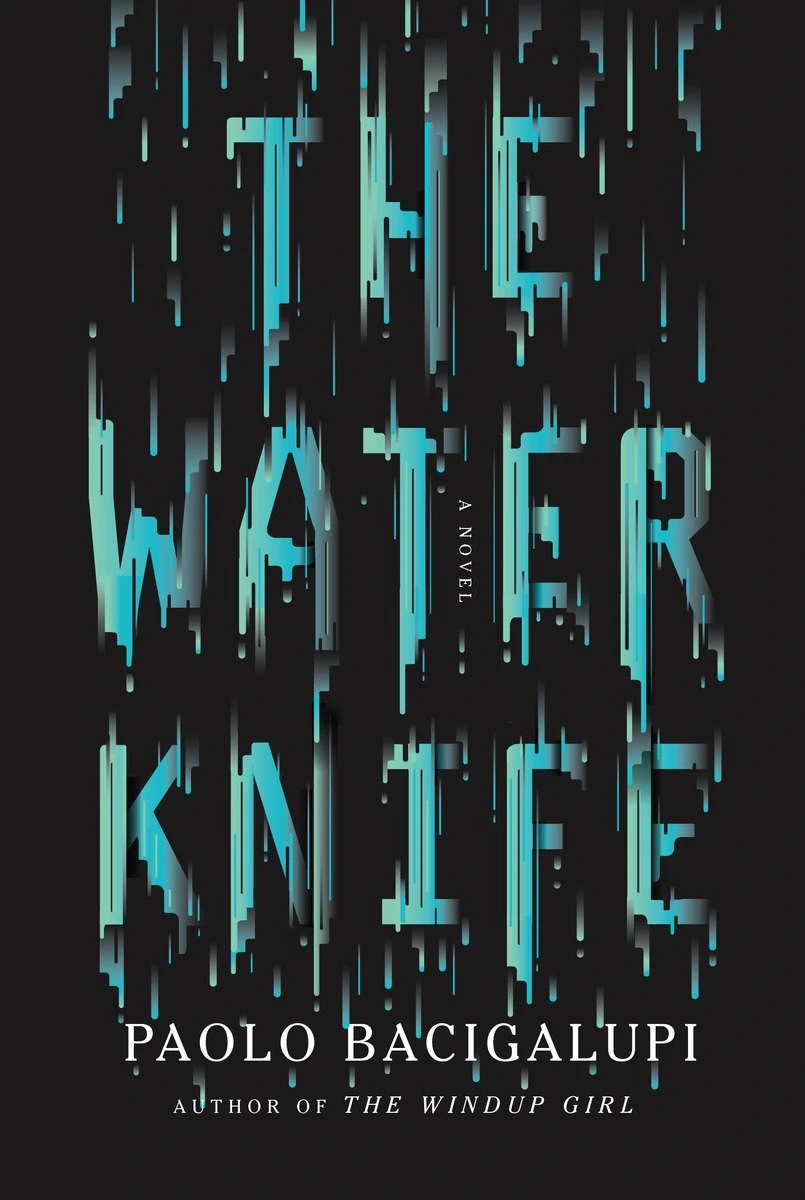
A Review of The Water Knife by Paolo Bacigalupi
Words By Christopher Notarnicola
Please note that this interview was originally published on our old website in 2015, before our parent nonprofit—then called Tethered by Letters (TBL)—had rebranded as Brink Literacy Project. In the interests of accuracy we have retained the original wording of the interview.
Paolo Bacigalupi may be just the weatherman we need in the literary field of environmentalism. Writing within the climate fiction, or cli-fi, class of the larger science fiction genre, his previous work dealt with a futuristic mining operation in Montana (The People of Sand and Slag, 2004), sea level rise and biotechnology in Thailand (The Windup Girl, 2009), and flooding and scrap metal salvage in New Orleans (Ship Breaker, 2010). In his 2015 novel The Water Knife, Bacigalupi has his foresights set on drought in the southwestern United States.
In the near future dystopic world of The Water Knife, corporations have privatized massive water-hording archologies where the rich can live at ease while the surrounding areas of the southwest suffer in massive drought and poverty. Lucy Monroe is a journalist from the east coast, an area still lush with fresh water and vegetation, who is in Phoenix, AZ to report on the tragedy and ruin—two topics which have proven successful for her in the past—though this brings her no pleasure. Angel Velazquez, on the other hand, creates disasters for a living—working at the command of corporate interest to cut the water supply to anyone who operates pumps outside of the established infrastructure. These two cross paths with Maria Villarosa who, more than anything else, just wants out of the slums for a cool drink of water. Floating around these three protagonists is the rumor that there are water rights up for grabs that could turn the whole crooked system on its head and restore water and prosperity to the southwest.
Bacigalupi’s proposed future is grim. The landscapes of The Water Knife are not a forgiving place, and neither are the people. Characters, primary and secondary alike, are subject to morally relativist thinking and ethically cloudy decisions. The situations that these characters end up in is sometimes cringe-worthy, other times nearly unthinkable, and Bacigalupi captures these moments with an uncomfortable pace and clarity. The brutality is almost too much at times—but that’s part of what makes this novel so compelling.
Bacigalupi has crafted his characters to be a reflection of their environment. The desert is dry and barren, and there is death at every turn, so it only makes sense that his characters be desensitized to the horrors of such a world. Where we turn away, his characters lean in. For Angel and Lucy, it’s their job. For Maria it’s simply life. For us, for the readers of The Water Knife this world serves as a warning, a fictional forecast—one that we still have the power to prevent. Bacigalupi has created here an ecologically destitute landscape, but a dystopia within the characters who populate it. We owe it to ourselves to read this book, to examine its characters without flinching, to peer into The Water Knife’s take on the future and to come away from it with fresh eyes so that we might see our own world anew.